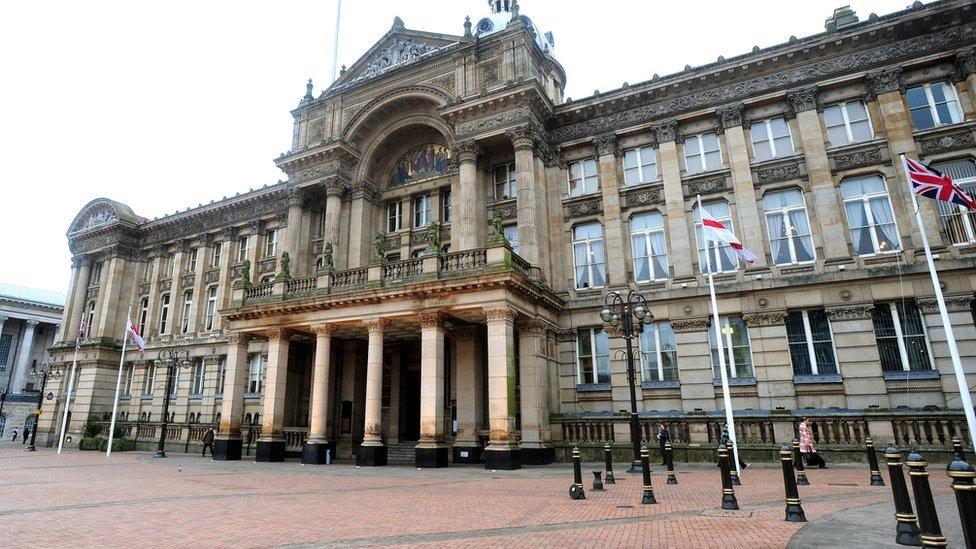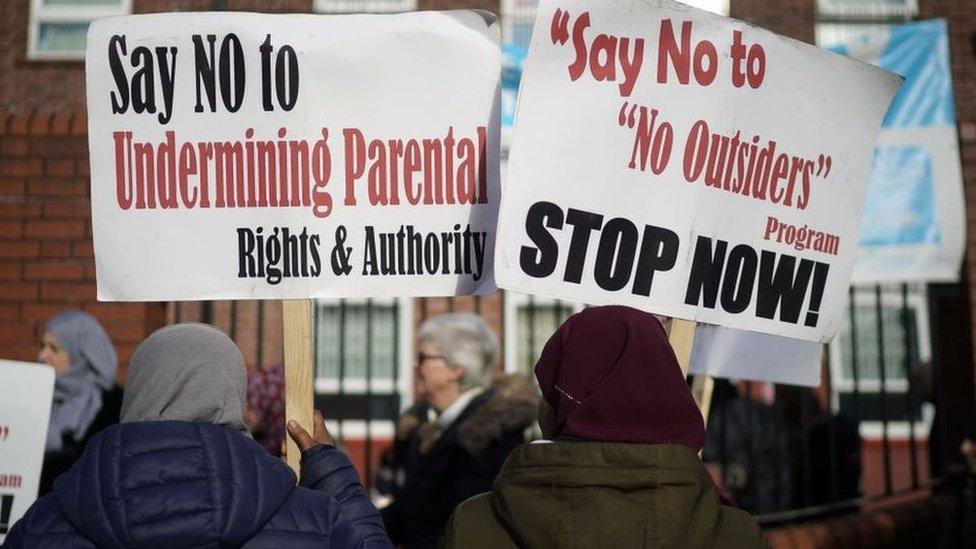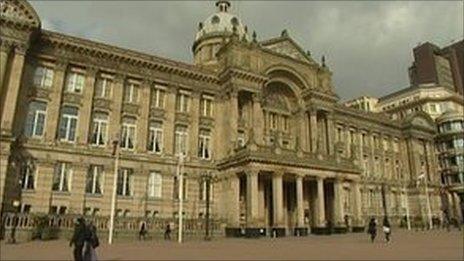Birmingham City Council moots BAME and female shortlist quotas
- Published

Nearly half of the 1.1m people who live in Birmingham are from ethnic minorities
Birmingham City Council has proposed shortlisting at least one woman and one ethnic minority candidate for every vacancy at the authority.
Adopting the so-called Rooney rule would aim to address the slow progress the council said it had made in tackling injustice and inequality.
England's largest local authority has been criticised over its diversity but says it now wants to set an example.
Cabinet members will discuss the plan along with other measures next week.
'Looked like me'
The Rooney rule - named after Dan Rooney, the man who ensured that ethnic minorities were interviewed for top jobs in American football's national football league - also recommends interview panels should also be more ethnically diverse.
John Cotton, cabinet member of social inclusion, community safety and equalities, said: "Frankly, I accept progress at times has not been fast enough or sustainable enough."
He said the council wanted to work with the private and voluntary sectors, educators and neighbourhood groups to drive change across the board.
Nearly half of the 1.1m people who live in Birmingham are from ethnic minorities.
In 2017, West Midlands Mayor Andy Street commissioned a report into the lack of diversity, complaining that "meetings of regional leaders involved many people who looked like me - white, male, middle-aged".
Monuments and statue review
In July, Commonwealth Games Federation president Dame Louise Martin stepped down from the board, after the 2022 Birmingham Commonwealth Games organising committee was criticised for having an almost entirely white executive team.
Among the council's plans are measures to ensure its workforce reflects the communities it serves and to "remove barriers" within the authority to address the "serious lack of Black, Asian and Minority Ethnic representation at senior level".
Councillors said they also wanted to develop a curriculum with schools and local historians to tell Birmingham's "unheard stories" of diversity.
In addition, the council has said it will review the "appropriateness" of monuments and statues on council-owned property.
Ten years ago, 90% of the city council's cabinet was white and male, it was now "50% female with three BAME members," Mr Cotton said.
"If we want a fairer society, we will all have to work harder and faster to deliver change that people right across our society desperately need," he added.

Follow BBC West Midlands on Facebook, external, Twitter, external and Instagram, external. Send your story ideas to: newsonline.westmidlands@bbc.co.uk , external
- Published24 July 2020

- Published29 March 2019

- Published12 November 2012
